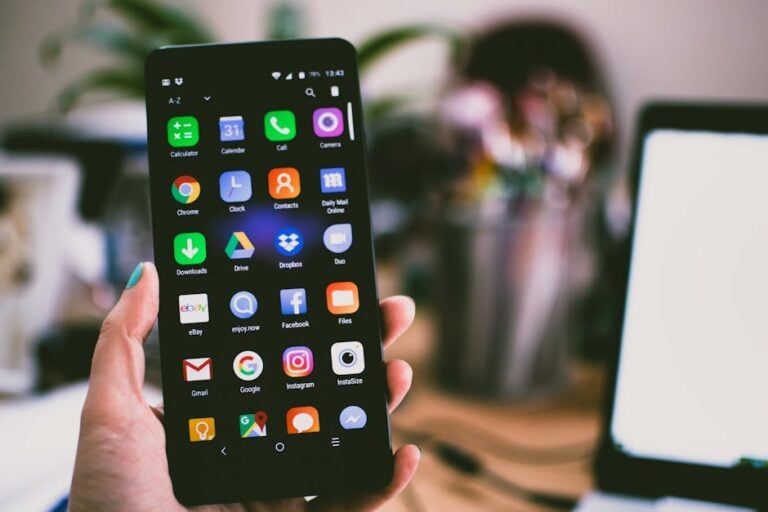The Ultimate Guide to Social Media’s Impact on Sleep
Understanding the Relationship Between Social Media and Sleep
Social media and sleep are more intricately connected than most people realize. The explosion of platforms such as Facebook, Instagram, and Twitter over the past decade has revolutionized the way we communicate and consume information. However, this digital engagement often comes at a cost—namely, our sleep quality.
A staggering 70% of adults and over 90% of young adults were reported to use social media regularly by 2020. With such high engagement levels, it’s crucial to explore how this behavior can negatively influence our nightly rest. As someone passionate about sleep research, I’m excited to present the findings that shed light on this critical issue.
How Social Media Affects Sleep
The Role of Blue Light in Sleep Disruption
One of the primary culprits behind the adverse effects of social media on sleep is the blue light emitted by mobile devices and tablets. While this light enhances productivity during the day, exposure at night can severely disrupt our sleep cycle. Blue light inhibits the production of melatonin, the hormone responsible for signaling when our bodies should sleep. When you scroll through your social media feeds or watch videos before bed, your brain remains in an alert state, delaying melatonin release and pushing your sleep onset time further back.
Key Impacts:
– Blue light exposure from screens significantly delays melatonin production.
– A disrupted circadian rhythm leads to later sleep onset.
– Reduced melatonin levels can degrade overall sleep quality.
Cognitive Arousal and Emotional Engagement
Engagement with social media isn’t solely about blue light; the content itself plays a critical role. Social media feeds are designed to captivate users, causing cognitive arousal. This heightened mental activity can prevent your brain from winding down in preparation for sleep. Emotional responses generated by what you see—be it excitement, stress, or anxiety—can further complicate your ability to relax.
Key Impacts:
– Consuming stimulating content can keep the mind highly active.
– Emotional experiences can incite stress or excitement, detracting from sleep quality.
– The anxiety of missing out (FOMO) can lead to compulsively checking feeds.
The Effect on Daytime Performance
The cascading effects of insufficient sleep due to social media usage extend into our daily lives. Poor sleep quality often results in daytime fatigue, making it difficult to concentrate and perform well in various aspects of life. Over time, chronic sleep deficiency can lead to severe mental health issues, including anxiety and depression.
Key Impacts:
– Inadequate sleep leads to daytime drowsiness and reduced productivity.
– Chronic lack of sleep can influence mental health and emotional well-being.
– Quality sleep is essential for overall health and daily functioning.
Investigating the Data: Statistics and Research
Recent studies highlight the alarming correlation between social media use and sleep issues. A notable study from the University of Pittsburgh found that individuals aged 19-32 who frequently checked social media were three times more likely to suffer from sleep disturbances. Conversely, the American Academy of Sleep Medicine reported that 93% of Gen Z respondents experienced sleep loss due to engaging with social media late at night.
Key Findings:
– 80% of adults admit to experiencing sleep disturbances linked to social media activities.
– Heavy social media users are significantly more prone to sleep issues.
– 30% of young adults report high levels of sleep disturbance associated with social media.
This data underscores the urgent need to address the impact of social media on our nightly rest.
Practical Tips to Improve Sleep Quality
Establishing Boundaries with Technology
Managing the impact of social media on sleep starts with setting clear boundaries around device usage. Here are some actionable strategies:
– Turn Off Notifications: Eliminate constant alerts that can create anxiety and disrupt your sleep. Use “Do Not Disturb” mode at night.
– Keep Devices Out of the Bedroom: Charge your phone in a different room to minimize temptation and late-night distractions.
– Use Traditional Alarm Clocks: Relying on a phone for alarms encourages night-time scrolling. Opt for a traditional clock instead.
Developing a Relaxing Bedtime Routine
Crafting a calming pre-sleep routine can signal to your body that it’s time to unwind. Consider these activities:
– Read Books: Physical books or e-readers with blue light filters are great alternatives to screen time.
– Journaling: Writing your thoughts can help declutter your mind and alleviate anxiety.
– Warm Bath: A warm bath can relax muscles and facilitate the transition to sleep.
– Practice Relaxation Techniques: Incorporate deep breathing exercises, meditation, or gentle yoga to foster relaxation.
Frequently Asked Questions About Social Media and Sleep
How does social media disrupt sleep?
Social media contributes to sleep issues through:
– Sleep disruptions from blue light exposure.
– Delayed sleep onset due to late-night scrolling.
– Increased daytime tiredness resulting from insufficient sleep.
Can quitting social media improve sleep?
Yes, reducing or quitting social media can lead to remarkable sleep improvements by:
– Decreasing cognitive engagement, allowing the brain to unwind.
– Enhancing overall sleep quality and maintaining a natural sleep-wake cycle.
What percentage of people lose sleep due to social media?
Approximately 80% of the population reports sleep loss tied to social media use, emphasizing the widespread influence of social platforms on sleep patterns.
Conclusion: Taking Charge of Your Sleep
The impact of social media on sleep is substantial and multifaceted. Blue light exposure and emotional engagement can lead to poor sleep quality and daytime fatigue. By understanding these effects, you can take proactive steps to manage your social media habits.
Setting boundaries and creating a serene nighttime routine can pave the way toward better sleep. Remember, prioritizing sleep is essential for overall health and well-being. At Yawnder, we’re committed to equipping you with the knowledge and tools necessary to enhance your sleep quality. Embrace these tips, and you’ll soon find yourself feeling more rested and ready to seize the day.













